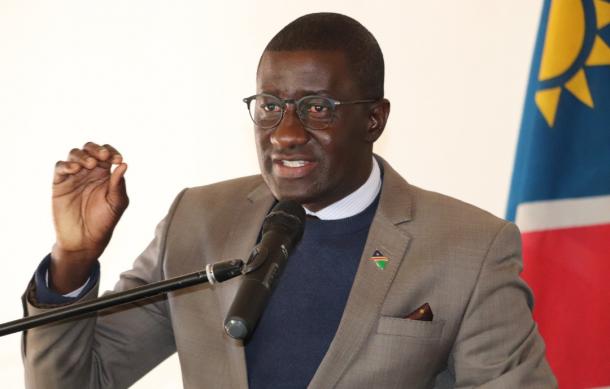
Otjozondjupa Regional Governor James Uerikua says there is a need to intensify linkages and add value to the devil's claw plant.
Uerikua made these remarks at a two-day training and certification workshop for 30 devil's claw harvesters from different conservancies in the Okakarara Constituency.
Namibia currently ranks as the world's largest exporter of Devil's Claw, with the market estimated at between 400 and 600 tonnes of annual exports.
"If the devil's claw is taken from Namibia, where does it go to? Who buys it, and at what price is it bought? And how they themselves, as harvesters on the ground, can be able to participate in that entire process. When you get this devil's claw, it's harvested, traded, and, of course, ground and converted into various finished produce or products that are today on the shelves of our pharmacies, but a farmer must get assurance that what is in the pharmacies of Okakarara is the very devil's claw I have harvested, that I sold to Mr. X or Y, and that it is now being traded at this price. It gives you a sense of understanding."
Uerikua says a means must be found to sustainably harvest the devil's claw.
"The production systems that we have in place ought to be ethical in terms of the practises that are put on the ground. You are mostly in the middle-man scenario, where you employ 30, 50 people, go out there to harvest for me devil's claw, and bring bags for me, but how do you as people take care of those guys? The labour, the hours, the efforts, and the risks that are associated with those guys harvesting on your behalf—that's the concern and focus that we need to bring in."
Okararara Constituency Councillor Abdul Mutjavikua welcomed the training, saying participants will now be equipped to add value and skills.
"We are training people to train others, but we are also going one step further to make sure that these people are becoming experts in trading in the devil's claw and its product. Which is one step higher than production and which will also guarantee that we will not train these people to be at the production level, allowing them to be exploited like what is happening with the rest of the products that we produce in the region. My point still stands: we are trying to change the way our economy operates at this moment."
"We are trying to see, as a Ministry and as a project with stakeholders, how we can tap into the natural value that is in the greater Waterberg. We need to tap into that market so that the inhabitants of this constituency can feel the value of having Waterberg next to them from a tourism perspective," said Bennett Kahuure, Wildlife and National Parks Director at the Environment Ministry.
The training was conducted by GIZ in conjunction with the Ministry of Environment and Tourism.





